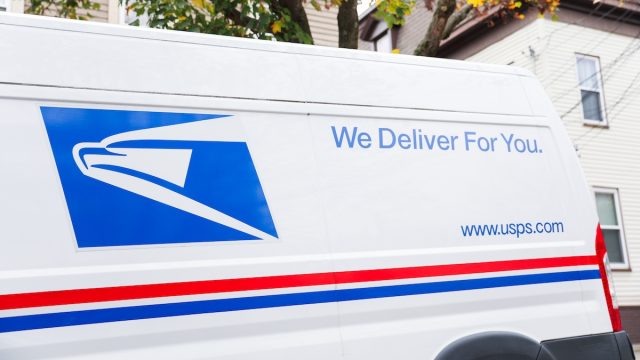Postmaster General Louis DeJoy Stands by USPS Changes Amid Massive Delays

The U.S. Postal Service (USPS) has been trying to dig itself out of financial turmoil since 2006. In 2020, Postmaster General Louis DeJoy was appointed to help turn things around—but DeJoy’s efforts have been heavily scrutinized, including a good deal of criticism. Be that as it may, DeJoy is standing by USPS changes in the face of recent setbacks.
RELATED: 6 Major Changes Postmaster General Louis DeJoy Has Made to the USPS.
DeJoy isn’t afraid to call it as he sees it: The Postal Service is running out of cash and fast, despite its best efforts to stay afloat and compete with private-sector shippers. In a Jan. 2024 letter to President Joe Biden and congressional leaders obtained by Federal News Network, DeJoy stated the agency aims to “cut $5 billion from its operating costs and grow its revenue by the same amount.”
DeJoy plans to achieve this by increasing monopoly mail prices, restructuring postal management and hours, and introducing network modernization plans. The USPS is also opening Regional Processing & Distribution Centers (RPDCs) to help alleviate overwhelmed operations in metropolitan areas like Atlanta and Richmond, Virginia.
However, time has shown that these rollouts aren’t helping. The USPS is still treading water, as mail and packages in Atlanta and Richmond fail to be delivered on time, Federal News Network reports. The setback poses “significant issues,” DeJoy told Senate Homeland Security and Governmental Affairs Committee members, per Federal News Network.
Nevertheless, DeJoy said the newly opened facilities will play an integral part in getting the USPS back in the green.
“In regards to service deteriorating, we recognize that, and we apologize to the constituents that have received that service. But in the long term, if we don’t make these changes, that will be every day, everywhere around the nation,” he told members.
Postal Regulatory Commission Chairman Michael Kubayanda noted that “some disruption should be expected with these network changes,” though the massive delays in Georgia are evidence of bigger “underlying problems,” he added.
According to Kubayanda, only 16 percent of letter mail was delivered on time in Atlanta during March. Inbound first-class mail saw healthier statistics at 36 percent, but the numbers aren’t where they should be, Kubayanda said.
However, the massive delays haven’t deterred DeJoy, who told officials he’s “optimistic about the changes” and expects things to smooth over by summer.
“The road to success will not be a straight, easy path. Rather, it will be a series of accomplishments, struggles and recoveries that will be uncomfortable at times,” DeJoy said.